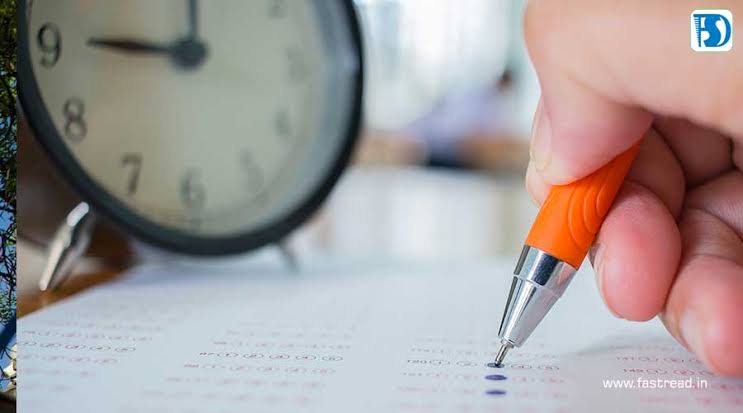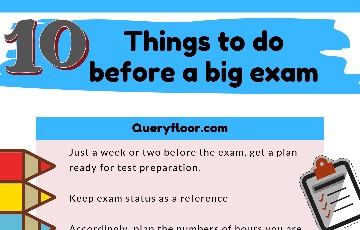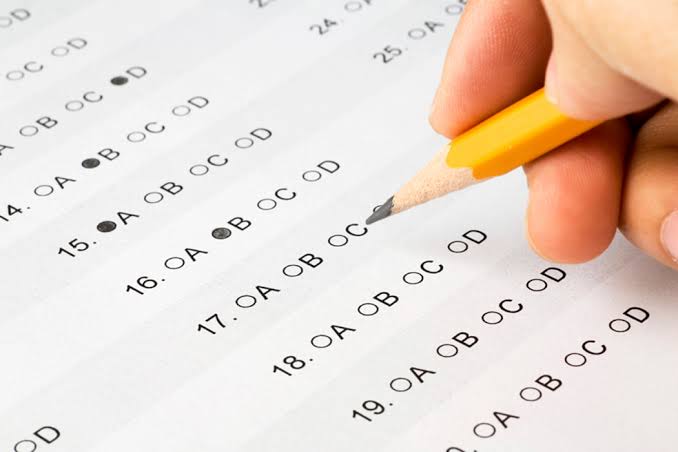TIPS AND TRICKS FOR EXAMS.
Pick up a desirable place for your preparation, where no one can disturb you.
Manage your time, and try to utilize your time on study near exams.
Study every day, and give time to every subject. So that you can focus on all subjects instead of one.
Make a timetable for your preparation according to your schedule, in which you have to include your all subjects.
Take a break after studying each subject. By doing this you can not mix up the content of all the subjects.
Take a revision of what you study in a day. The review is very important because it assists you to memorize the content which you study earlier.
Stay motivated, because it boosts your mental ability to achieve your desired score in exams.
Try to organize a study group with friends. It is believed that learning becomes easier when we study in groups.
Make sure you solved the old sample papers.
Always try to explain your answer to others.
Use mind mapping to keep the study material memorize in your brain.
Making notes in easy language. And remember, always make notes of vital points.
Prefer to study in the morning and in a peaceful atmosphere
Find out your learning style as you are visual learner, an auditory learner, or maybe you are a physical learner. And adapt your learning technique which assists you to memorize.
Take Plenty of sleep so that you can perform well in exams and your brain remains fresh for revising all study material. Eat healthily and stay fit near exams. Do not procrastinate.


1. Find what is stressing you out
Once you are aware of the exact cause of your stress, it becomes easier to work on it. Take a look at what is causing you difficulty. It may be a particularly hard chapter, a tricky formula that you can not remember or a question that you are unable to answer.
It can also be a combination of all these factors. Once you become aware of these stressors, you can take active steps to lessen the stress.
2. Get help from classmates or teachers
If your doubts are stressing you out, it can be helpful to ask your classmates or teachers for help. You can make a list of all the questions that you find difficult and consult your classmates or teachers for answers. You can also request them to explain a difficult chapter for you. This can help you understand the subject better and learn the information efficiently.
You can also attend extra classes, tuitions or look up the necessary information online to help sort out the confusion and calm down the stress.
3. Take regular breaks
Taking regular breaks is very important. During exams, we often get busy studying all the information and taking notes. Studying for long hours at a stretch without taking breaks can cause stress, burnout, and exhaustion. To prevent this, take a break every 45-60 minutes to feel relaxed and regain your mental energy. This also helps in focusing on your studies with a fresh mind.
Exams might seem stressful but with the right management and good study techniques, you can easily overcome the stress and learn better. With these simple tips, you can combat your exam stress and score good marks.
1. Starting late and regretting it later.
2. Not participating in the learning process actively.
3. Not Studying according to the examination pattern.
4. Revising the information already known repeatedly.
5. Relying totally on the teachers or private tutors for Exams.
6. Keeping rote memorization over the understanding.
7. Not making a routine/proper plan of learning.
8. Always studying too much, or studying much at the last moment.
9. Sticking to only one place for studying.
10. Studying one way only.
11. Studying Alone always.
12. Studying with gadgets.
13. Studying with an empty stomach.
14. Studying continuously.
15. Not using the quick learning methods.

1. Give your opinion
2. Essay writing tips for IELTS: Bring out new ideas
3. Use new and uncommon words
4. Show both positive and negative views
5. Understand the question
6. Put yourself in the situation
7. Give examples and illustrations
8. Give relevant answers
9. Link the paragraphs of the answers
10. Avoid repetition of words
11. No grammatical errors
12. No too long or short sentences
13. Proper sentence structures
14. Suitable phrases

You are fully prepared for your exam if you – take notes – followed up with study at home – revise – practiced the previous year's papers and now you are confident about taking the exam. But there are a few things you should do on the D-day of the exam to achieve the best possible exam results.
1) Turn up early for the exam.
2) Relax
3) Read all the instructions again even if you know most of them – there could be new instructions that you may not be aware of
4) Plan which ones you are going to attempt first
5) Start writing surely and with confidence
6) Answer as many questions as you can
7) Manage time effectively while attempting questions
8) Allot time for checking the paper again and again
9) In case you have more time after checking the paper you can attempt more questions that you are sure of the answer to.
10) Finally, analyze your performance.

There are 10 things to do before a big exam or when you receive your exam timetable.
1) Just a week or two before the exam, get a plan ready for test preparation.
2) Keep exam status as a reference
3) Accordingly, plan the numbers of hours you are allotting for studies.
4) For practical subjects like Math and Science give equal importance to both theories and practice time sessions
5) Next plan how you are going to utilize it to cover all the subjects for the exams.
6) Practice more past papers to get the hang of the exams
7) Eat good food
8) Do not ignore your night’s sleep or else you will be groggy
9) Instead of sitting at your study desk at all hours, take out some time for exercise, at least try walking
10) Most importantly do not panic. Just be a cool and complete revision
Here are some tips to follow if you are underperforming your aptitude:
1) Accept the fact and denying only delays time
2) Adopt a positive attitude now to stay on course
3) Check the areas you are underperforming
4) Analyze your weak areas and allot more time to them
5) Talk to teachers and seek study tips
6) In class follow what is going on with utmost concentration
7) Take notes writing to the next level – write crisp notes, compare with friends, and review once the chapter is done
8) Ask if you need any clarifications
9) Allocate more time to studies – avoid other activities which consume your time
10) Improve your language skills to communicate in your answers better
11) Try memory improving techniques
12) Tomorrow never comes! Do not postpone!
13) Take the help of friends or a study group
14) Take tests regularly
15) Revise for longer even before you get your exam timetable
16) Take care of your health; sometimes health issues could reduce your grades
17) Refer to other sources for studying
18) Self-tests also help
19) Be cool on the day of the exam and do your best
FlashcardExchange - is a tool to create flashcards, saving you a lot of time.
Time edition – helps you track how much time you spend learning.
PocketMod – can help compress your study material into small blocks – for example, you can store all your math formula details together on one page. Whip it out when you want to learn them by heart.
Web Seavus Dropmind and MindMeister are two online packages that can help you create Mindmaps.
Some best content resources for subjects, especially Math and Science online, are Khan Academy, Brilliant, Virtual Nerd, STEM, Desmos, GeoGebra, CanFigureIt Geometry, and PhET Interactive Simulations, and CueThink.

● Pay attention to the class and then start taking notes.
● Refer to your previous lecture notes before being ready for the next class.
● Write legible notes.
● Keeping your notes organized in binders is a good idea as you can add extra papers in between when necessary.
● Use highlighters, pencils, and pens to highlight headings and subheadings.
● Start a new page for a new lecture.
● Leave space for comments or extra notes.
● Write fast but cover everything.
● Choose a note-taking method that you are comfortable with.
● Seek clarifications if required.
● If something is illogical, clarify and complete writing then and there.
● Compare notes with your friends if the need be.





